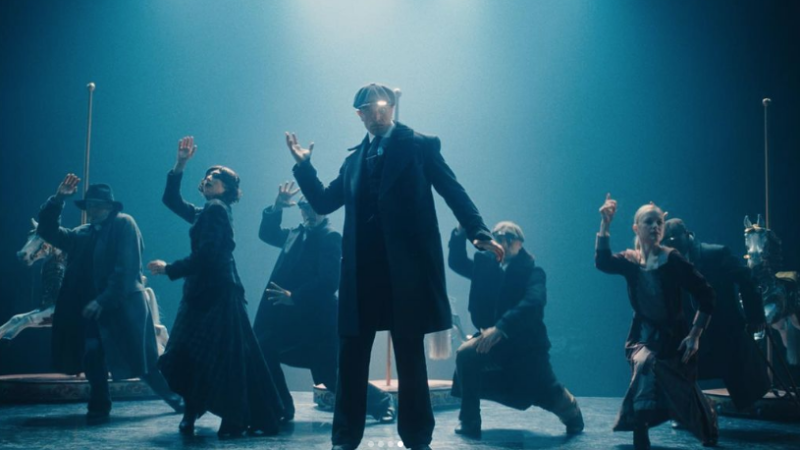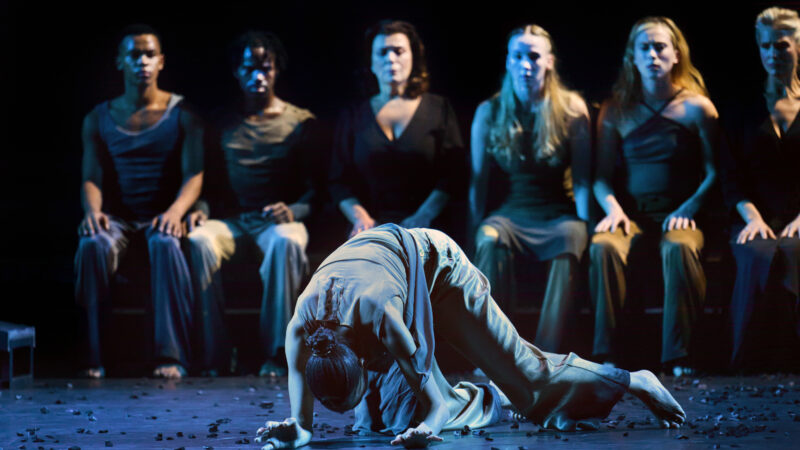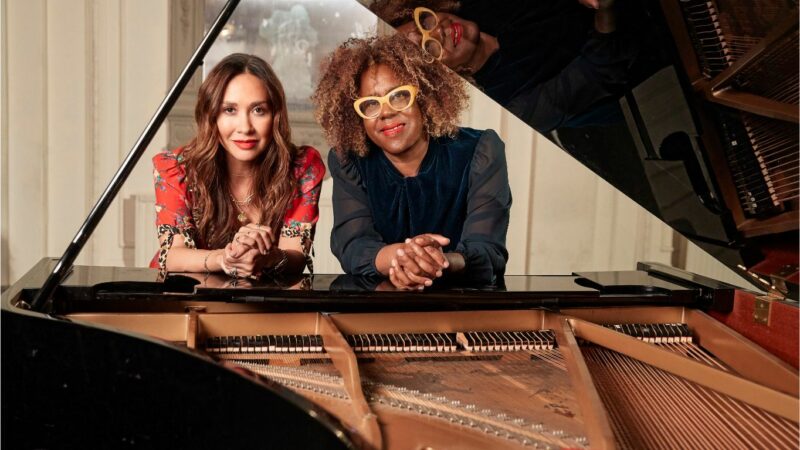Benedict Mason’s 2014 BBC Proms commission ‘MELD’ held audiences spellbound when performed at the Royal Albert Hall as part of the BBC Proms. He made use of the venue in a remarkable way with 140 musicians of the outstanding Aurora Orchestra and choir Chantage.
The Space has captured the performance digitally for a far wider audience than saw the work live. Benedict Mason’s has resulted in a new genre that is much more than just a recording. It makes use of multiple cameras positioned around the hall, alongside roving cameras, and masterful editing. The end result places you at the heart of the experience, giving a vivid sense of the movements and interactions of the musicians and singers with the space.
This commission for the 2014 BBC Proms was one of the most striking pieces ever to have been written for the Royal Albert Hall – ‘mysterious, mad and ecstatic… an avant-garde happening that left one speechless with its epic zaniness’, wrote The Times in its 5-star review of the event. Using all 144 musicians in all parts of the hall for a unique choreography and theatre, Mason’s piece turns the traditional performance model on its head, engaging the audience in a spectacular entertainment.
Mason describes how the film transposes the live performance to another level:
Over the years I have composed some pieces where the building in which the performance takes place, assumes a role equal to that of the musicians. These buildings have been for example, abandoned factories just as much as concert venues.
Meld is the second piece I have written for the Albert Hall. All the musicians play throughout the whole hall. They also play while moving: some of them do carefully choreographed dances. Everything is very precisely organised and notated to the millisecond. This is not a random happening for the sake of it.
During its 40 odd minutes, the piece proceeds through sections that build only on the experience of the previous ones. This takes a certain time: those interested should watch the film to the end.
The inspiration for this approach comes from a deep fascination with film and montage. That is why I was so pleased The Space commissioned the film. Now the film is the ‘product’ – my work was just the acoustic version in the concert hall.
I was lucky enough to collaborate with the accomplished editor Isabelle Dedieu. She is the co-author. It was very significant how this film was put together: being abstract, music is less objective and tangible for an editor to work with. Through a process of painstaking selection and refinement, good editing continually keeps up the interest, while balancing and navigating the options available.
Isabelle Dedieu made it intelligible for a non-musical audience, in such a way that the viewer is able to be in all parts of the hall at once. She supported the narrative context of the composition without interfering with it, always juggling the different groups of peripatetic musicians that featured at any one moment. This is why the film becomes a new ‘art form’, not possible in the live musical performance alone. Alchemy. Plus we now enjoy the formal beauty resulting from the counterpoint between the rhythm of musical elements and the ‘silent’ rhythm of balanced changes of shot.
There were no chances to retake, and not every musician was filmed. Filming had to be always secondary to the requirements of performance. Although some of the musicians wear portable cameras, only film from normal cameras could be used.
Watching the extraordinary musicians of the Aurora Orchestra who give and show more than just playing their instrument, offers with cinema an added excitement and electricity. They present to camera as much as they are asked by the composer to do so to the audience.
The film premiered at the Aldeburgh Music Festival and can be seen in full on The Guardian on on the BBC iPlayer.
About this artist
Benedict Mason is a British composer. His work embraces a post-modern diversity in many genres including opera, theatre, orchestra, electronics, new instruments, performance art and video. Some of his works exploit the architectural and acoustical properties of the building the piece is being performed in.




